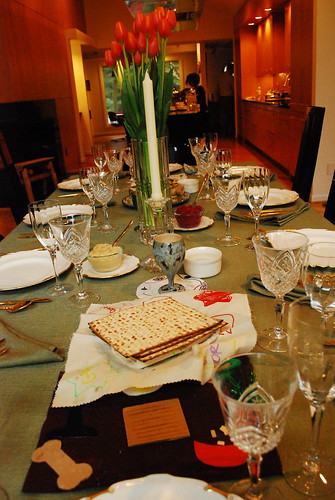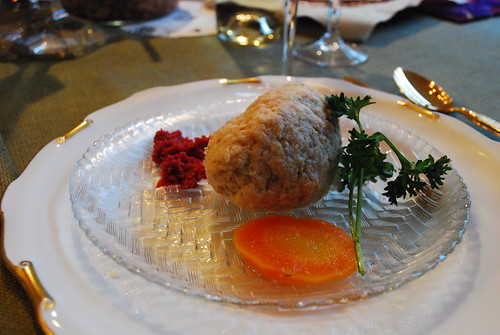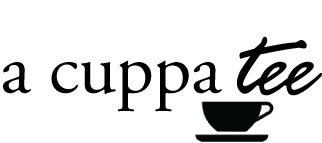Now for the promised photos of my first ever Passover Seder courtesy of the loveliest host family a high-school exchange student could have, Sweet Pea Sister's host family...








A few of the things I learned about Passover Seder:
1) It's the best holiday to be new to because it's all about asking questions...
2) Four questions asking why this night is different from all other nights to be exact:
- "Why is it that on all other nights during the year we eat either bread or matzoh, but on this night we eat only matzoh?"
- "Why is it that on all other nights we eat all kinds of herbs, but on this night we eat only bitter herbs?"
- "Why is it that on all other nights we do not dip our herbs even once, but on this night we dip them twice?" and
- "Why is it that on all other nights we eat either sitting or reclining, but on this night we eat in a reclining position?"
3) Along with four questions, we have four glasses of wine (mmm!)
4) Afikoman (Hebrew language: אפיקומן, based on Greek, epikomen or epikomion [επί Κομός], meaning "that which comes after" or "dessert") is a half-piece of matzo which is broken in the early stages of the Passover Seder and set aside (or in our case hidden) to be eaten as a dessert after the meal. Everyone at the table who doesn't yet have children searches for the hidden Akikoman and whoever finds it wins a prize!
After the consumption of the Afikoman, traditionally, no other food may be eaten for the rest of the night. Additionally, no intoxicating beverages may be consumed, with the exception of the remaining two cups of wine.
Now am off to a Good Friday Procession with big brother G and Sweet Pea Sister in my new 'hood... The weather (25C!) couldn't be more perfect out!
Happy Easter Triduum!
xo,
tee.






Since you mentioned them, I decided to look for the answers. Here they are:
ReplyDelete1. Why do we eat only Matzoh on Pesach and not all kinds of breads and crackers like other nights?
When Pharaoh finally ordered Jews to get out of Egypt after the tenth plague, they were in such a hurry to get away from slavery that they hadn't time to let their dough rise and bake their bread. Thus, they took the raw dough with them on their journey and baked it into hard crackers in the hot desert called Matzoh. Thus, we eat only Matzoh on this day to remind us of their struggles.
2. Why do we eat bitter herbs or Maror at our Seder?
Maror or the bitter herbs are eaten to remind us of the bitterness of slavery and harsh and cruel ways in which Jewish people were treated as slaves under the Pharaoh in Egypt.
3. At our Seder, why do we dip the parsley in salt water and the bitter herbs in Charoset?
Parsley represents new life and Spring while salt water represents tears of Hebrew slaves. Parsley dipped in salt water thus represents new life that emerged from the tears and hardship of the Jewish slaves. Bitter herbs dipped into Charoset represent the bitter days of slavery. Charoset has a coarse texture like clay used to make bricks for the Pharaoh's buildings.
4. Why do we lean on a pillow while eating tonight and do not sit straight like other nights?
Leaning on a pillow signifies the comforts of freedom. As slaves, our ancestors had little comforts. Thus, we lean on a pillow to assert that we are free now and can sit straight or lean on a pillow as much as we like.
Well done, Dad! Thanks for adding the answers =)
ReplyDeleteHappy Eastover!